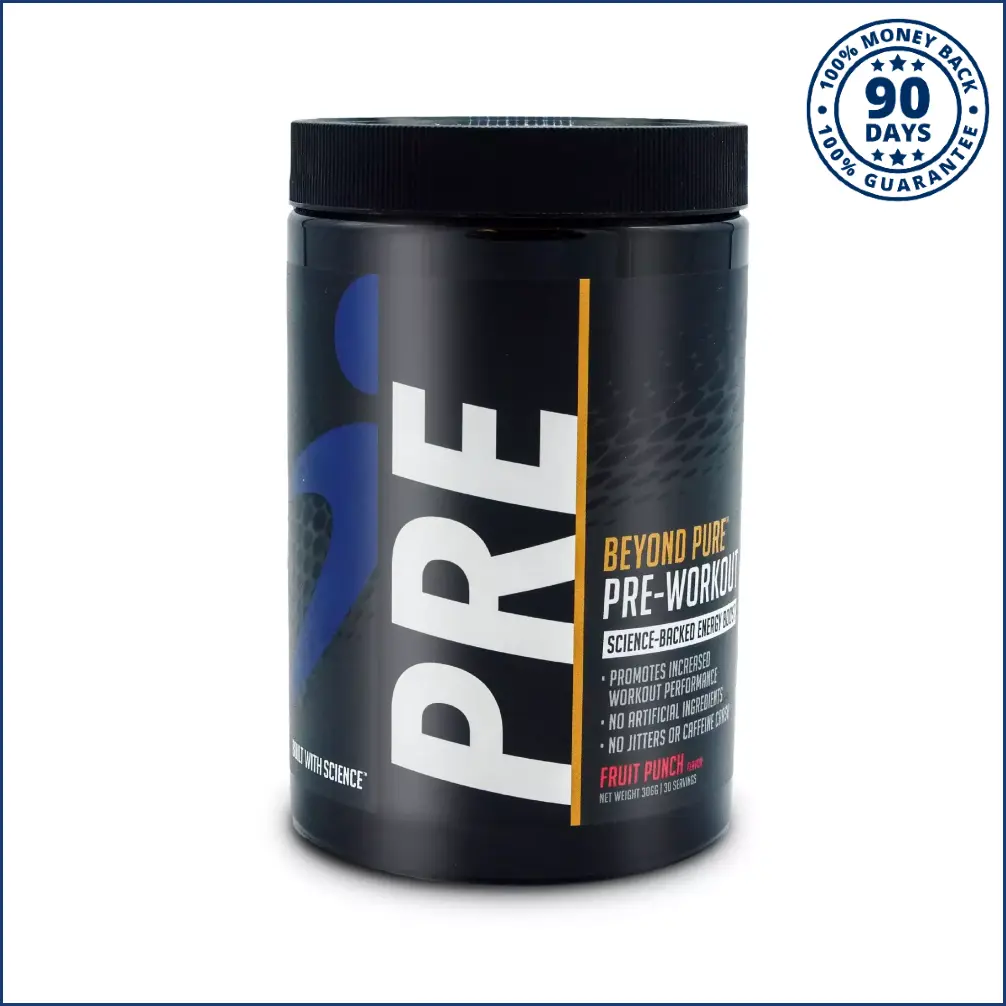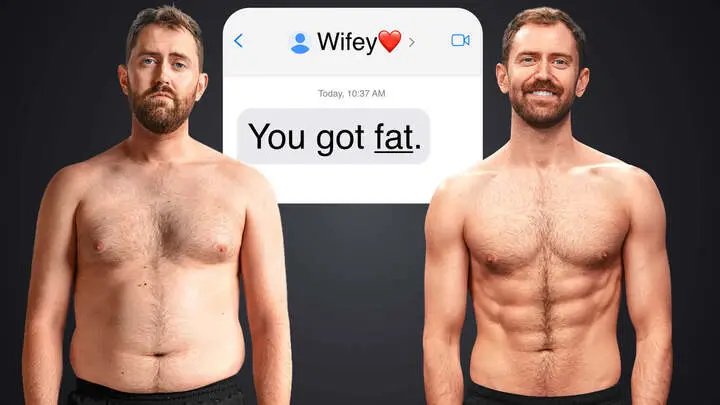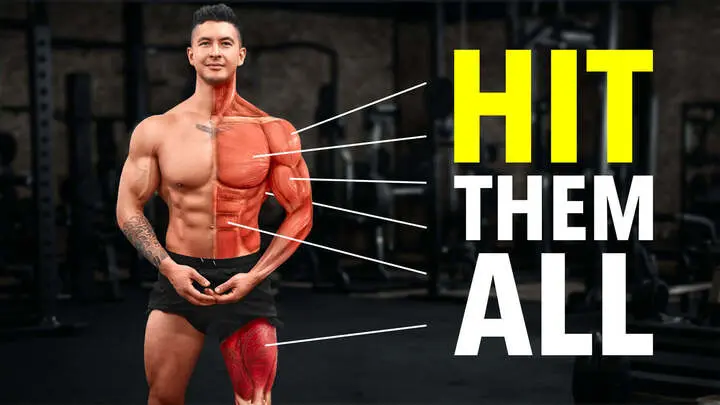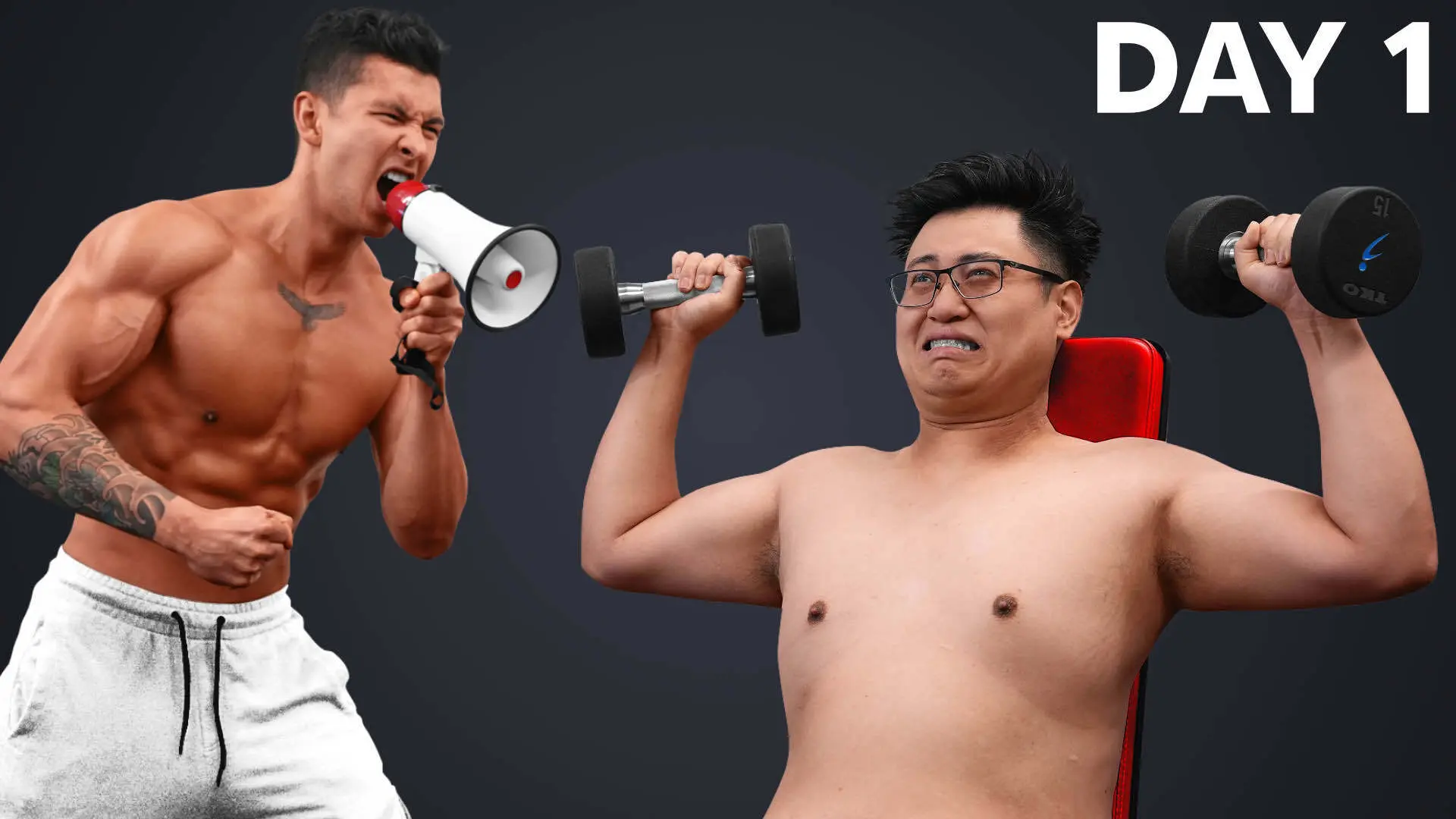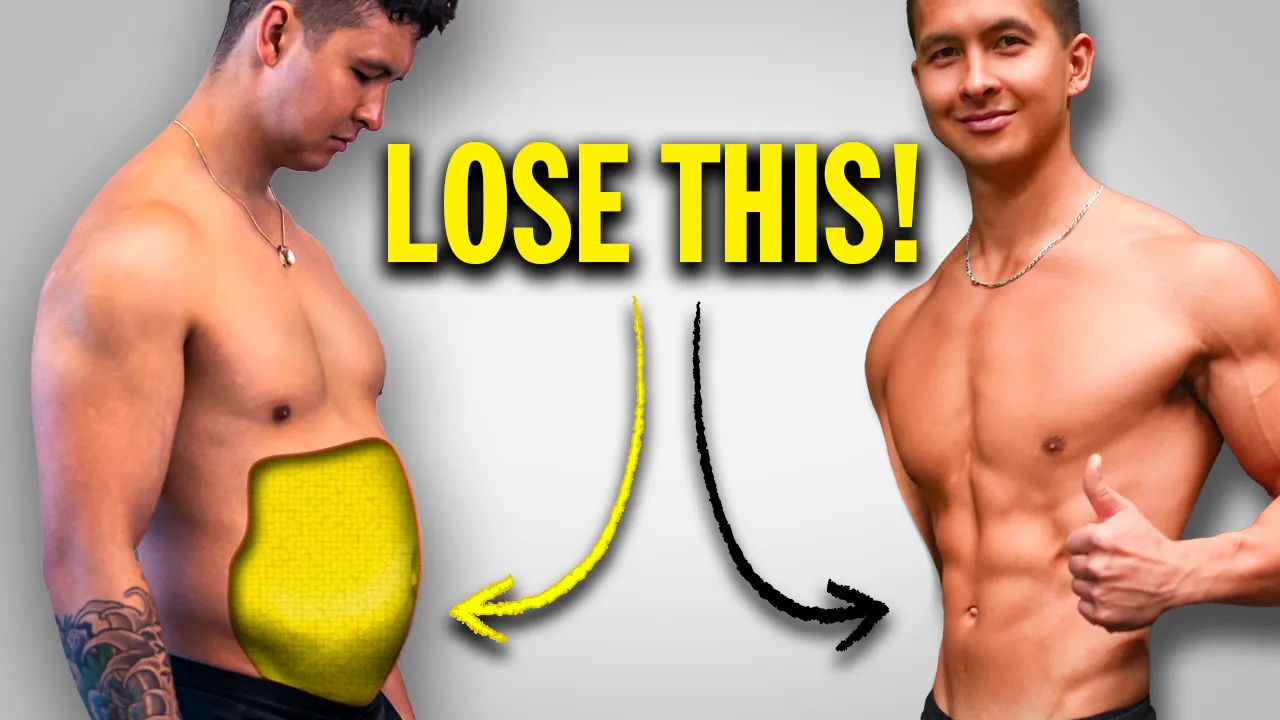
How To Lose Belly Fat (Updated In 2023)
How To Lose Belly Fat
Belly fat is really easy to gain yet often the hardest area to lose.
And there are actually two types.
There’s that annoying belly fat we all know of that covers your abs, but there’s also a more dangerous type of belly fat stored deep within your organs known as visceral fat, which can create serious health problems.
To find the most effective way to get rid of both types of belly fat, I reached out to 5 of the world’s most qualified fat loss scientists and came up with 5 easy steps anyone can easily start doing today to lose belly fat.
Layne Norton On How To Lose Belly Fat
For the first and most important step, I spoke to Layne Norton.

Scientific researcher, champion powerlifter, and honestly just a really smart dude who calls out BS when he sees it.
And here's what he had to say about belly fat.
Many people find that they gain fat here first preferentially and then tend to lose it from here last.
We don't know the exact scientific explanation for that, but it may have something to do with the tissue being a little bit more metabolically active than other forms of stored body fat.
Now, the real question is, what are the best exercises to lose fat, or is there even a way around that?
Well, yes, kind of. If you apply the steps in this article, you'll be able to lose stored belly fat, but the idea that you're gonna be preferentially able to target it based on doing crunches and those sorts of things is probably a little bit of a farfetched idea.
Now, there is research showing that exercise can reduce visceral fat without actually causing weight loss.
So it is a good idea to exercise in general, but specific exercises are not going to target preferentially belly fat per se.
Sadly, even though we'd like to think if we do a bunch of crunches and work the area where the fat is stored, it will preferentially target that fat.
There is no evidence to support that idea, and it's unlikely that that would make a difference overall.
The real key to losing belly fat is just getting into a caloric deficit consistently and doing it for long enough.
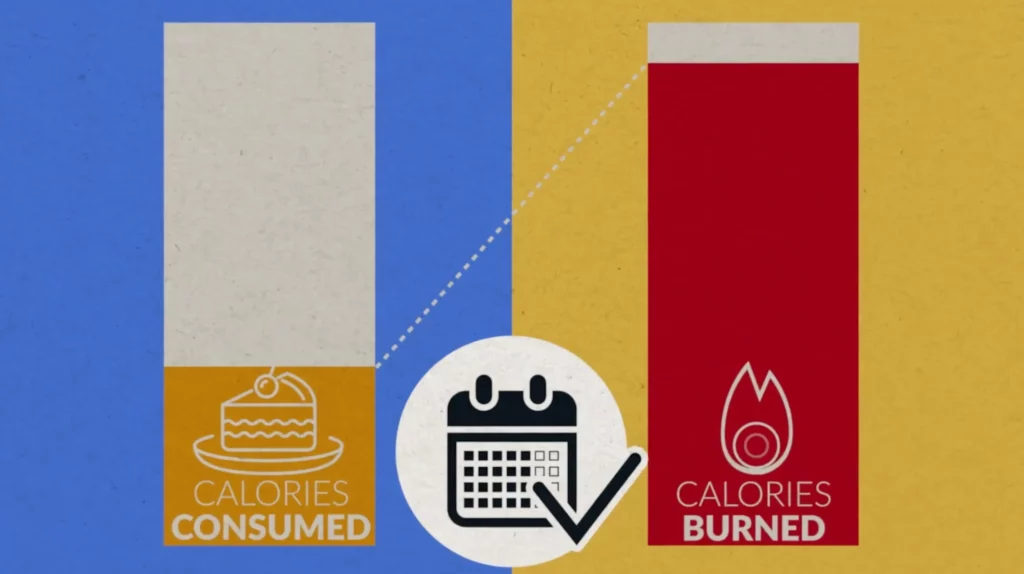
I know people don't want to hear this, but sadly, since we can't really target belly fat, you're just gonna have to be really consistent and apply that deficit over a longer period of time.
Okay, so the bottom line from Layne? Eat in a calorie deficit — and stick with it for some time.
But how much of a calorie deficit are we talking about?
Well, that depends on quite a few things, like your biological sex, body fat percentage, and activity level. Sounds pretty complicated, right? Well, luckily, my team and I created a calorie calculator that does all the work (read: math) and removes the guesswork for you:
Click the button below to find out exactly how many calories you should be eating:
↓
Now, as for actually creating the calorie deficit you need? It comes down to modifying your diet.
And that’s where our next expert comes in, Alan Aragon.
Alan Aragon's Take

Alan is one of the world’s top nutrition researchers and educators with over 30 years of success in the field. He’ll explain the best way to set up a diet to start losing belly fat and keep it off for good.
What Are The Best Foods To Lose Belly Fat?
Alan and I started off by agreeing that there are no specific foods that will target belly fat. That said, I wanted to get his opinion on whether there are any foods that could help counteract the phenomenon where the body essentially "fights back" against a calorie deficit (because it sees it as a survival threat) by raising food cravings and hunger levels.
And here's what he had to say: you have to be eating the foods that you like and look forward to.
If we take a couple of steps back, people have an idea of what their 20 favorite foods are. Now, honestly? That's what they should be eating. And people freak out when they hear that.
But hey man, if you love the foods that you're eating, you're gonna stick to your diet — whether you're dieting or whether you are trying to gain.
And it helps to have an awareness of the food groups as well. Because when I say your 20 favorite foods, I mean your 20 favorite foods that are reasonably healthy choices across the food groups.
So, there are 6 food groups:
- Meat/high protein
- Fat (e.g., oils and nuts)
- Fibrous vegetables (e.g., leafy greens)
- Starch (e.g., legumes, tubers, and grains)
- Milk (e.g., cheese, milk, and yogurt)
- Fruits
So choose your three favorite foods across each of those food groups, and you'd have 18 out of 20 foods that should make up your diet.
And the remaining 2 foods? You can think of them as your 2 favorite YOLO foods, your two favorite desserts, or whatever. For example, wine and freaking cookies or something, you know, brownies and ice cream, whatever.
And that's a healthy diet right there that'll hold you down for life, instead of just seeming like a temporary dieting phase.
Now, when I heard that approach, I was amazed — I've never really heard it put like that. And I wanted to learn more about the specifics of protein intake, so I asked Alan how important he thought protein is when it comes to losing belly fat, or just fat in general.
How Much Protein Do You Need To Lose Belly Fat?
Here's what he said.
Adequate protein intake is crucial when dieting because:
- It's the most satiating macronutrient. FYI, the other 2 macronutrients are fat and carbs.
- It helps you preserve muscle mass. This, as mentioned earlier, improves appetite regulation.
- It's the most thermogenic of the macronutrients. Theoretically speaking, if you eat a food that's 100% protein, your body will spend about 30% of those calories just trying to process it, which is not necessarily the case with carbohydrates and fat. And this, obviously, helps from the standpoint of a weight and fat loss perspective.
So, adequate protein intake is non-negotiable.
And it doesn't have to be a tough thing to accomplish either. Some people throw out these crazy numbers, but really, on the low end, if you consume 1.6 grams per kilogram of body weight, which is 0.7 grams per pound of body weight, then you are at an adequate starting point.
And I had one final question for Alan: whether there are any kinds of foods that promote the storage of visceral fat. Or, in other words, are there foods that people can eat to avoid gaining visceral fat?
Here's how Alan replied.
Researchers have been fighting over the answer to this question for a really long time.
And the overarching answer that covers a lot of things is that if you're losing fat, or if you're getting lean, there's really no concern about visceral fat because if you're losing overall fat, then visceral fat is diminishing as well. It's not like that's gonna hold steady, you know?
Principle number two is that visceral fat is mainly a concern for people who are gaining fat.
So the way to gain fat, of course, is you have to be running a caloric surplus and then have total body fat accumulate over time.
And there's actually a study by Fredrik Rosqvist and colleagues where they compared what types of dietary fat (polyunsaturated fat source versus a saturated fat source) most influence visceral fat.
It was a hypercaloric experiment, where the subjects were eating more calories than they were burning.
The results? The saturated fat-rich diet resulted in greater visceral fat accumulation than the polyunsaturated fat-rich diet, which happened to use sunflower oil to fortify that diet to make it high in polyunsaturated fatty acids (PUFAs).
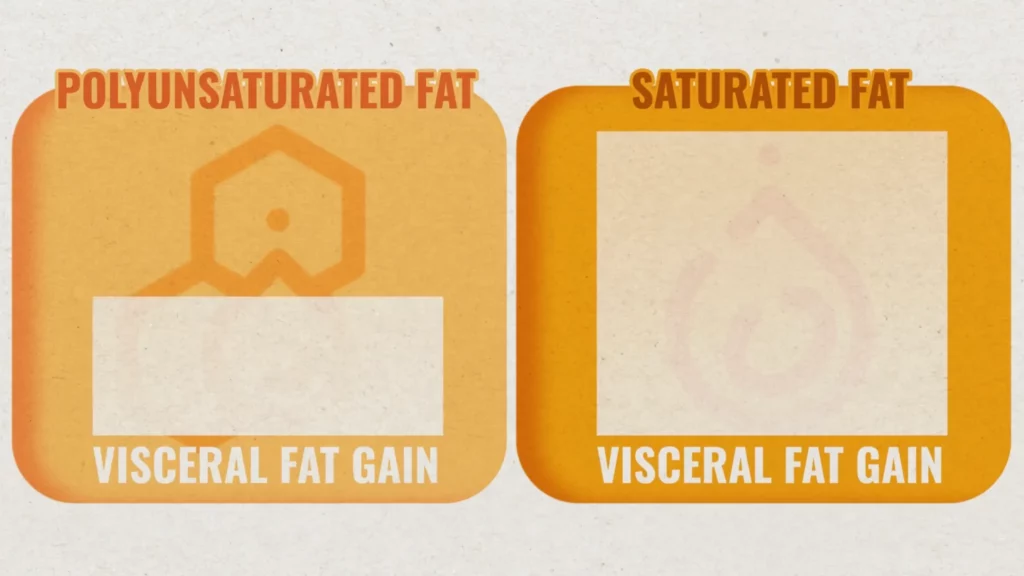
And so that was kind of an eye-opening thing to see, that the calorie surplus in the:
- Saturated fat model led to greater gains in visceral and ectopic fat, while
- Polyunsaturated fat resulted in greater lean mass gains
So one side (i.e., the saturated fat model) had a really unfavorable partitioning effect. And then the other side (i.e., the polyunsaturated fat model) had a much more favorable energy partitioning effect.
Okay, so, thanks to Alan, you've got your nutrition plan.
Now, let's talk about exercise.
Because as Layne mentioned earlier, exercise can burn off that dangerous visceral fat deep in your belly even if you don’t lose any weight.
But the right type of exercise can also help you avoid regaining belly fat as soon as your diet is over.
Eric Trexler's Take On How To Lose Belly Fat With Weight Lifting
To explain this is Eric Trexler, pro natural bodybuilder and published scientist with a PhD in Human Movement Science.

Here's what I asked him: "Usually when people are trying to lose belly fat, they automatically think that they have to do a bunch of cardio, but how about resistance training? Like, how important is lifting weight for someone who's interested in losing belly fat?"
And here's his reply.
So I'd say it's really important.
I mean, it's not necessarily mandatory, but there are some major benefits of resistance training if you're trying to lose belly fat and really just trying to lose fat in general.
So, first of all, if you're lifting during this fat loss phase, there's a very high likelihood that you are going to reduce the amount of muscle loss that occurs during that weight loss.
And that's great for 2 reasons:
- You will probably find that you have better muscle definition once you get leaner. A lot of people who don't lift weights and just do fat loss often find that they end up looking more skinny and less shredded than they were hoping at the end.
- Appetite regulation. There's been some really good research in the last couple of years indicating that the more muscle, or the more lean mass you lose during a diet, the more hunger you tend to experience later on and the higher likelihood that you're actually gonna regain some of the fat that you lost later.
OK, so lifting is super important. But I also wanted to get Eric's thoughts on how cardio fits into the picture. Obviously, cardio has a lot of benefits for the health that lifting weights doesn't necessarily provide, but I questioned what they were, so let's dig into that.
Does Cardio Help Lose Body Fat?
Here's what Eric said.
You know, so a lot of people will say, well, why would I need cardio if I'm already lifting anyway? Right? Because I'm in the gym five days a week, my heart rate's elevated, and I'm burning calories.
And the reality is you don't need cardio in order to lose fat or to lose belly fat.
But cardio can be a helpful thing. And one of the reasons for that is energy expenditure has a tendency to go down during a fat loss phase.
So, of course, there will be some reduction normally in resting metabolic rate, but non-exercise activity thermogenesis is another really key thing that can change during a fat loss phase. Non-exercise activity is basically everything that exists between resting and doing structured exercise.
So walking to the mailbox, walking around at your work or your school, you know, anything that fits between those two extremes of exercising on purpose and just kind of totally resting.
It's usually the second biggest contributor to total daily energy expenditure for most people.
Unfortunately, when we diet, a lot of people notice that their non-exercise activity thermogenesis goes down pretty significantly.
Cardio can be a really helpful thing in keeping your expenditure higher when that non-exercise activity starts to go down over time.
So you're just trying to kind of keep things steady by adding some cardio to the mix.
Note that cardio can take a lot of different forms.
And so what I try to do is help people identify types of physical activity, whether it is extremely low intensity, extremely high intensity, or everything in between, that can help people just move around more throughout the day.
And for some people, it's even just purely behavioral.
We might just say, "Hey, use the stairs instead of the elevator and park at the back of the parking lot instead of the front."
So everything that gets you moving counts.
Right, so NEAT really all adds up. And I was really interested to get Eric's thoughts on how we could monitor our non-exercise activity thermogenesis (e.g., would steps be a good indicator?)
Eric agreed that we could use steps.
More specifically, he said that he usually tells people to use step count as a proxy. It's not perfect, but it is kind of the most useful metric that we can get reliably based on the technologies that are available. There are 2 goals you could aim for with your steps:
- Maintain a consistent step count as you're progressing through your diet just to make sure that you're not lowering that subconsciously over time, and
- Try to be a little more proactive and say, since I'm dieting and my energy expenditure is going down, including my resting energy expenditure, perhaps I might even try to have a small increase in step counts. So if before the diet I was consistently getting, you know, 10,000 steps a day, maybe during the diet, I might want to increase it to 11 or even 12,000 just to try to offset some of those reductions.
Nutrition? Check. Exercise? Check. Even with those 2 things nailed down, though, a recent 2022 study found there’s an often overlooked variable that can still prevent you from losing belly fat.
Bill Campbell
To explain this study is Exercise Science professor and body composition researcher Bill Campbell.

So this new study was very unique in that it was the first-ever investigation to assess a lack of sleep in how it affects where body fat is stored.
They took 12 healthy males and females who on average slept about seven and a half hours per night.
They had these subjects live in a research sleep lab and then placed them into 2 different sleep conditions:
- Sleep-restricted condition: Participants were allowed to sleep only four hours per night.
- Normal sleep condition: Participants were allowed to sleep nine hours per night.
During this entire process, they were allowed to eat as much of whatever food they wanted to eat.
So after two weeks in each condition, the results were in.
Does Sleep Affect Your Body Fat?
The sleep-restricted subjects, on average, consumed 300 more calories per day, and they gained about a pound of body weight when compared to the subjects when they were in the normal sleep stage.
But here's where things get really interesting.
There are two compartments where we store body fat.
There's subcutaneous fat in our belly region, and that's the fat that you can pinch. And in that area, the subjects that were sleep restricted gained 8% more subcutaneous body fat, which was twice as much body fat in the belly region that they could pinch.
And then the normal sleep condition, they only gained about 4%.
The other part of our bellies that stores fat is called the visceral region or visceral body fat. And that's the fat that's inside of our organs and around our organs. This is dangerous body fat because it's associated with a lot of adverse health outcomes.
The sleep-restricted condition caused an increase in 11% of this visceral body fat and in the normal sleep condition, they didn't gain any.
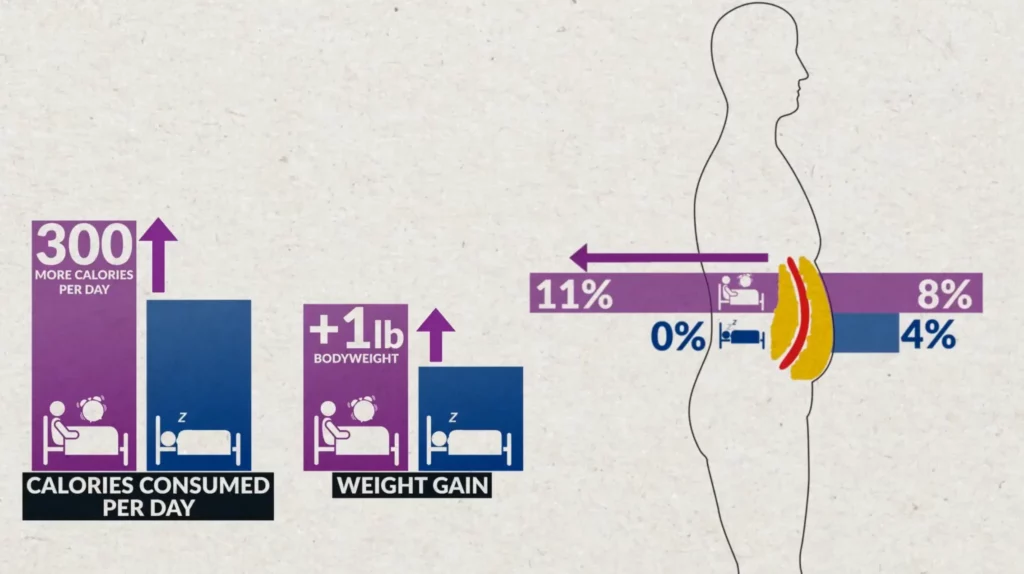
Now again, since they ate more calories, we would expect a little bit of a gained body fat, but not nearly to the extent that we saw as it was localized to the belly region, to the abdominal region.
So this study suggests that there may be a link to sleep restriction leading to overeating, which causes a gain in body fat that is preferentially stored in the belly region.
So my takeaway from this is to make sure that you prioritize sleep.
I would suggest that you get about seven hours per night and that you do not overlook the importance of this.
Now, I know some of you might be thinking “Ok, well the subjects were overeating. What about if I’m still in a calorie deficit? Does sleep still matter as much?"
That’s a valid question.
And a 2010 study actually tested this. Researchers put two groups of subjects on a weight loss diet with calories equated. The only difference was one group slept 8.5 hours per night while the other slept only 5.5 hours per night. The result?
Both groups lost a similar amount of total weight (6.3 lbs vs 6.6 lbs). Both groups also did lose some muscle because they weren’t lifting weights.
But the well-slept group lost 1.6 times less muscle AND lost 2.3 times more fat than the sleep-restricted group (3.3 lbs of muscle loss vs 5.3 lbs, and 3 lbs of fat loss vs 1.32 lbs). This, in turn, suggests that lack of sleep alone may in fact lead to more muscle loss and less fat loss during a diet.
So you’ve got all the tools you need to lose belly fat.
But there’s one more thing you need to add to your plan. Failure to do this is why so many people start out strong yet never end up successfully losing their belly fat.
Laurin Conlin's Take On How To Lose Belly Fat
Laurin Conlin, a master coach, exercise scientist, and IFBB Bikini Pro will help explain what this missing piece is.

So a client is gonna obsess over losing belly fat. Even if they have seen some changes on the scale or seen improvements in other areas of their body, since there hasn't been much change in their belly fat, they're going to feel like what they're doing isn't working, or it's not happening fast enough.
Some clients are just gonna give up right then while others are going to slash their calories or increase their cardio.
This increase in their deficit is typically unsustainable though.
So they're going to fall off plan and inevitably quit. And where do these clients end up? They're discouraged, and they still don't have the physique that they are after.
First, it's important to recognize that unless genetically you have little body fat on your abs and core area, you will probably need to get leaner than you'd think to lose belly fat.
For many people, the belly is the last area where you're going to see the fat come off, but in the meantime, you can pay attention and be proud of the progress that you've made in other areas, like your face and your shoulders, and your legs.
And trust that if you remain patient, that eventually, you'll start to see more and more progress in these problematic and stubborn areas.
Second, take multiple measures of progress.
You can use scale, weight, and measurements as quantitative feedback, but we also wanna look at qualitative feedback such as how your clothes are fitting, how you're looking, and how much better you're feeling.
Don't just obsess over your belly.
I know it's an area that we would all love to lose fat from immediately, but it is a long journey, so enjoy it and appreciate the progress that you've made everywhere else.
And lastly, and probably most importantly, be patient and recognize that you're usually quitting right before it gets good.
It doesn't matter how perfect your program is, unless you are patient and remain consistent, you are short-changing yourself and your results.
You owe it to yourself to make this change.
So don't give up. Follow or create a great program. Adjust it when is necessary and take your time. Your belly fat didn't get there overnight, so you're not gonna lose it in a few weeks either.
I want to give a huge thank you to all 5 of the experts who helped with this article. Guys, these 5 truly are the best of the best. I’ve been following and looking up to many of them for years, ever since I started my own fitness journey, so being able to interview them and share their work with you guys is such an honor. I’ve put links to all of their social media and websites down below so you can go give them a follow.
Layne Norton
Alan Aragon
Eric Trexler
Bill Campbell
Laurin Conlin

And if you’re interested in joining a science-based plan to transform your body as efficiently as possible, just take my free quiz below, and I’ll let you know what program is best for you and your body:
Click the button below to take my analysis quiz to discover the best program for you:
↓


